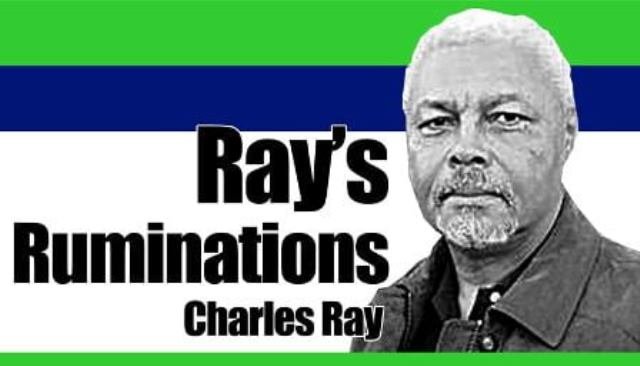
Nomads are people who have no permanent abode, and who travel from place to place, traditionally to find fresh grazing for their livestock. Except for a few groups in primarily traditional agrarian societies, today’s nomads are not dissimilar—except for the lack of livestock or concern for fresh pastures. Even the so-called developed, technologically advanced world has its nomads.
I’d like to talk about two in particular, and I’m not referring to Nomadland’s characters who live out of their trailer and essentially off the grid. The two particular nomads I have in mind are the digital nomads and the political nomads.
Digital nomads are people who travel freely while using the internet and technology to work remotely. They have minimal possessions and are usually found in temporary lodging such as hotels or recreational vehicles. They give lip service to borders and move fluidly from culture to culture, seldom staying in one place for very long.
Digital nomads have turned international news reporting on its ear by reporting from and on places and events that the traditional media often overlooks. They’ve also upended the traditional conception of work, demonstrating that work doesn’t necessarily require commuting to an office or being penned all day in a cubicle. I’m in this category.
In addition to writing, this column and others along with hundreds of books and doing it all via email and the internet, I teach a graduate level course in geopolitics on line, and do about half my public speaking engagements via online platforms.
The last time I worked in an office was over eleven years ago, and the last time I was actually in a physical classroom with students was briefly in 2022, after the Covid pandemic, when I taught my last official writing workshop before turning it over to a new instructor. I did that for eight years, six in classroom and two online, and now all my teaching is online. More and more, digital nomads are defining work, and fewer employers are fighting the changes.
Now, on to political nomads. This is a term that I coined myself, by the way. I use it to define politicians who change their address in order to run for office in an area where they’re likely to be more successful rather than the area where they have family or historical ties, or at least where they believe they’ll be more successful.
The idea of this came to me recently when I read the obituary of former UN ambassador Bill Richardson, who died at his home in Massachusetts on September 1, 2023. I first met Bill Richardson when he was governor of New Mexico. I was serving as the Deputy Assistant Secretary of Defense for POW/Missing Personnel Affairs and he led a delegation, which my deputy was part of, to North Korea to discuss the issue of searching for American GIs missing from the Korean War.
He was born in San Francisco and attended school in Massachusetts where he made his home after retiring from government. He moved to New Mexico in 1978 and began running for political office in 1980, winning a seat representing New Mexico in the US House of Representatives in 1982, where he served for 14 years. He was governor of New Mexico from 2003 to 2011.
Between the US Congress and the New Mexico state house, he served as US ambassador to the UN and as US Secretary of Energy. Before moving to New Mexico, where he ran as a Democrat, he worked for a Republican Congressman from Massachusetts.
Mitt Romney, currently a US Senator for the state of Utah, is also something of a nomad. From 2003 to 2007, he was governor of Massachusetts, and then moved to Utah in 2019 and ran for senator for the state where he attended college. A member of the Mormon faith, he was born and raised in Michigan. His mother was originally from Utah, but his father was born in Mexico to Mormon missionary parents, so he’s something of a hereditary nomad.
Not all political nomads are successful. Former NFL football star, Herschel Walker, though from Georgia, after his NFL career made Texas his home. He was enticed to return to Georgia in 2022 to run for US Senate seat against the freshman incumbent. He proved to be more successful on the football field than in the field of politics, losing by a landslide.
The caravans of nomads that are quite common on roads in Europe and the UK are no longer seen in the United States. Instead, we see them on our TV screens each political season, or if you’re a digital nomad like me, as a small icon on your computer screen. | NWI



